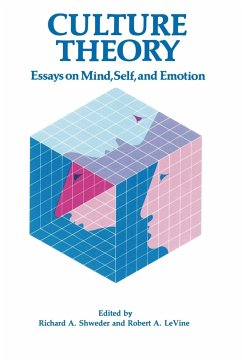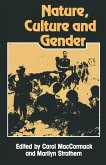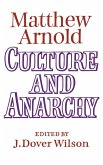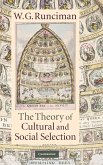The relationship between everyday experience and culture - seen as a set of ideas, values, or symbolic codes - has challenged social scientists, especially anthropologists, for more than a century. In this volume, leading social scientists present and discuss recent conceptions of culture and explore their implications for understanding different aspects of subjective experience, social practice, and individual behavior. The focus of the volume is on the role of symbols and meaning in the development of mind, self, and emotion. The contributors examine such questions as what is the content of culture and how does it interact with cognitive, social, and emotional growth; how are ideas related to attitudes, feelings, and behavior; how are concepts and meanings historically transmitted. They also explore methodological and conceptual problems involved in the definition and study of meaning, and revisit the perennial problem of 'relativism' in light of recent advances in semantic analysis and in culture theory. As a comprehensive and critical account of current knowledge and research in the field of culture theory, this book will appeal to an interdisciplinary audience of anthropologists, psychologists, philosophers, historians, and linguists, as well as those interested in hermeneutics and a science of subjectivity.
Table of contents:
Preview: a colloquy of culture theorists Richard A. Shweder; Part I. Culture Theory: An Introduction; 1. Anthropology's romantic rebellion against the enlightenment, or there's more to thinking than reason and evidence Richard A. Shweder; 2. Properties of culture: an ethnographic view Robert A. LeVine; 3. Cultural meaning systems Roy G. D'Andrade; Part II. Culture, Self, and Emotion: 4. 'From the native's point of view: on the nature of anthropological understanding Clifford Geertz; 5. Toward an anthropology of self and feeling Michelle Z. Rosaldo; 6. Does the concept of the person vary cross-culturally? Richard A. Shweder and Edmund J. Bourne; 7. Understanding people Zeno Vendler; 8. Emotion, knowing and culture Robert I. Levy; 9. Getting angry: the Jamesian theory of emotion in anthropology Robert C. Solomon; Part III. Culture, Language, and Thought: 10. The development of competence in culturally defined domains: a preliminary framework Howard Gardner; 11. Language acquisition and socialization: three developmental stories and their implications Elinor Ochs and Bambi B. Schieffelin; Part IV. Commentary: 12. Some reflections on cultural determinism and relativism with special reference to emotion and reason Melford E. Spiro; Name index; Subject index.
Hinweis: Dieser Artikel kann nur an eine deutsche Lieferadresse ausgeliefert werden.
Table of contents:
Preview: a colloquy of culture theorists Richard A. Shweder; Part I. Culture Theory: An Introduction; 1. Anthropology's romantic rebellion against the enlightenment, or there's more to thinking than reason and evidence Richard A. Shweder; 2. Properties of culture: an ethnographic view Robert A. LeVine; 3. Cultural meaning systems Roy G. D'Andrade; Part II. Culture, Self, and Emotion: 4. 'From the native's point of view: on the nature of anthropological understanding Clifford Geertz; 5. Toward an anthropology of self and feeling Michelle Z. Rosaldo; 6. Does the concept of the person vary cross-culturally? Richard A. Shweder and Edmund J. Bourne; 7. Understanding people Zeno Vendler; 8. Emotion, knowing and culture Robert I. Levy; 9. Getting angry: the Jamesian theory of emotion in anthropology Robert C. Solomon; Part III. Culture, Language, and Thought: 10. The development of competence in culturally defined domains: a preliminary framework Howard Gardner; 11. Language acquisition and socialization: three developmental stories and their implications Elinor Ochs and Bambi B. Schieffelin; Part IV. Commentary: 12. Some reflections on cultural determinism and relativism with special reference to emotion and reason Melford E. Spiro; Name index; Subject index.
Hinweis: Dieser Artikel kann nur an eine deutsche Lieferadresse ausgeliefert werden.








